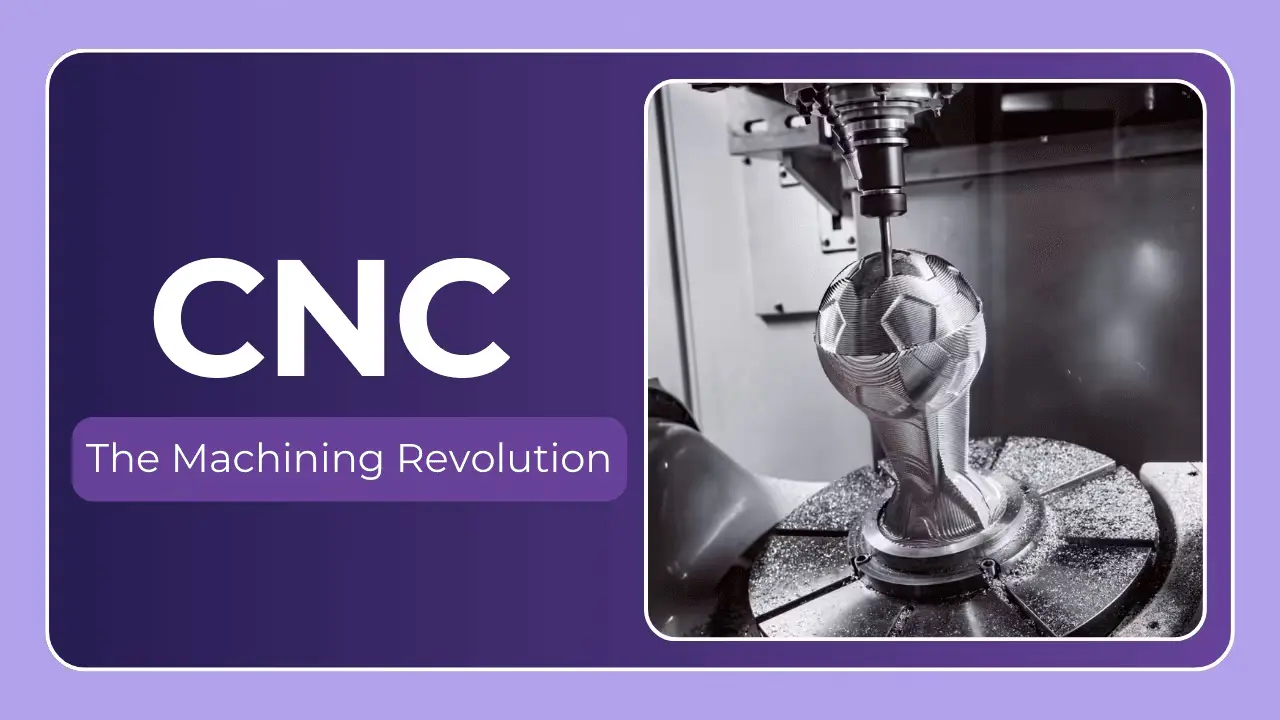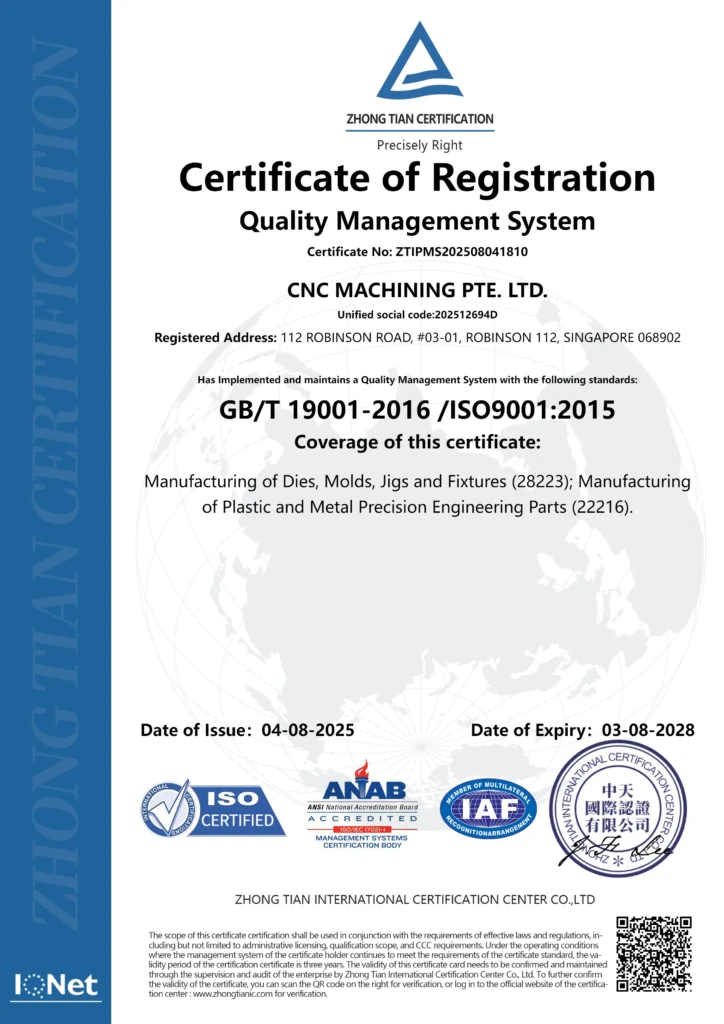The Golden State of Precision: A Deep Dive into CNC Machining in California
California. The name evokes images of innovation, technology, and a relentless pursuit of the cutting edge. This spirit extends deeply into the manufacturing sector, and at the heart of that sector lies CNC machining. But what makes California a particularly significant hub for this critical process? And what should you consider when choosing a CNC machining partner in the state? This article will explore the landscape of CNC machining in California, covering its strengths, common applications, material options, key considerations for selecting a provider, and a look at how global expertise, like that offered by CNC MACHINING PTE. LTD. (based in Singapore, but serving international clients), can complement local capabilities.
Why California for CNC Machining? A Unique Ecosystem
California isn’t just any place to manufacture. Several factors contribute to its prominence in CNC machining:
- Proximity to Innovation: Silicon Valley and the broader tech industry drive constant demand for precision components. This creates a fertile ground for specialized machining shops to thrive.
- Aerospace & Defense Dominance: Southern California, in particular, is a global leader in aerospace and defense. These industries demand extremely tight tolerances and complex geometries, pushing the boundaries of CNC machining capabilities.
- Medical Device Manufacturing: California’s robust medical device industry requires high-precision, biocompatible parts, often manufactured using advanced CNC techniques.
- Skilled Workforce: The state boasts a well-trained workforce, including experienced machinists, engineers, and programmers. Community colleges and vocational schools actively contribute to maintaining this talent pool.
- Established Supply Chain: A mature and interconnected supply chain supports the entire manufacturing process, from raw material sourcing to post-processing and finishing.
Understanding the CNC Machining Process: Beyond the Basics
CNC (Computer Numerical Control) machining is a subtractive manufacturing process. This means material is removed from a solid block (the workpiece) to create the desired shape. Unlike traditional machining, CNC machines are controlled by computer programs, allowing for incredible precision, repeatability, and complexity.
Here’s a breakdown of common CNC machining processes:
- Milling: Uses rotating cutting tools to remove material. Can create a wide variety of shapes and features. California shops often specialize in 3, 4, and 5-axis milling for complex parts.
- Turning: The workpiece rotates while a cutting tool is applied to create cylindrical shapes. Ideal for producing shafts, screws, and other round components.
- Drilling: Creates holes with precise diameters and depths.
- EDM (Electrical Discharge Machining): Uses electrical sparks to erode material. Excellent for creating intricate shapes and hard materials.
- Wire EDM: A specialized form of EDM using a thin wire electrode.
- Grinding: Uses abrasive wheels to achieve extremely tight tolerances and smooth surface finishes.
Materials Commonly Machined in California
California CNC shops work with a vast array of materials, catering to diverse industry needs. Here’s a table outlining some common options:
| Material | Common Applications | Key Properties | Typical Industries |
|---|---|---|---|
| Aluminum (6061, 7075) | Aerospace brackets, housings, prototypes | Lightweight, strong, corrosion-resistant | Aerospace, Automotive, Electronics |
| Stainless Steel (304, 316) | Medical implants, marine components, food processing equipment | Corrosion-resistant, durable, hygienic | Medical, Marine, Food & Beverage |
| Titanium (Grade 5) | Aerospace components, medical implants, high-performance parts | High strength-to-weight ratio, corrosion-resistant, biocompatible | Aerospace, Medical, Automotive |
| Plastic (ABS, Delrin, PEEK) | Prototypes, housings, gears | Lightweight, versatile, cost-effective | Automotive, Consumer Products, Robotics |
| Brass & Copper | Electrical connectors, plumbing fittings, decorative parts | Excellent conductivity, corrosion-resistant | Electronics, Plumbing, Art & Design |
| Inconel & Hastelloy | High-temperature components, chemical processing equipment | Exceptional heat and corrosion resistance | Aerospace, Chemical Processing, Energy |
Choosing the Right CNC Machining Partner in California: Key Considerations
Selecting the right CNC machining shop is crucial for the success of your project. Here’s a checklist of factors to consider:
- Capabilities: Does the shop have the equipment and expertise to handle your specific part requirements (material, complexity, tolerances)? Specifically, inquire about 5-axis machining capabilities for intricate designs.
- Capacity: Can the shop meet your production volume and deadlines?
- Quality Control: What quality control processes are in place? Look for ISO 9001 certification or similar standards. Ask about their inspection equipment (CMMs, optical comparators).
- Communication: Is the shop responsive and communicative? Clear communication is essential throughout the project.
- Cost: Obtain quotes from multiple shops and compare them carefully. Don’t solely focus on price; consider the overall value proposition.
- Post-Processing Services: Does the shop offer additional services like anodizing, plating, painting, or assembly?
- Experience in Your Industry: A shop with experience in your specific industry will understand your unique requirements and challenges.
- Design for Manufacturability (DFM) Support: Can the shop provide DFM feedback to optimize your design for efficient and cost-effective manufacturing?
The Global Advantage: How International Expertise Complements California’s Strengths
While California boasts a strong CNC machining ecosystem, leveraging international expertise can offer significant benefits. Companies like CNC MACHINING PTE. LTD., based in Singapore, bring advanced capabilities and competitive pricing to the table.
Here’s how a partnership with an international manufacturer can be advantageous:
- Access to Cutting-Edge Technology: Companies like CNC MACHINING PTE. LTD. invest heavily in the latest 5-axis CNC machining equipment and production technologies.
- Cost Optimization: Manufacturing costs can be lower in some regions, leading to overall project savings.
- Rapid Prototyping & Production: Quick turnaround times for both prototypes and production runs.
- One-Stop Shop: Comprehensive services, including post-processing and finishing, streamlining the manufacturing process.
- Material Versatility: Ability to work with a wide range of materials, including specialized alloys.
CNC MACHINING PTE. LTD. specifically excels in solving complex metal parts manufacturing problems and offers rapid customization for precision machining needs. They can seamlessly integrate with California-based design and engineering teams, providing a valuable extension of your manufacturing capabilities.
Conclusion: The Future of CNC Machining in California – A Blend of Local Strength and Global Reach
California remains a powerhouse in CNC machining, driven by its innovative ecosystem and demanding industries. However, the future will likely see a greater integration of local strengths with global expertise. Companies that can effectively leverage both – partnering with skilled California shops for local support and international manufacturers like CNC MACHINING PTE. LTD. for advanced capabilities and cost optimization – will be best positioned to succeed.
Whether you’re developing a groundbreaking aerospace component, a life-saving medical device, or a cutting-edge consumer product, choosing the right CNC machining partner is paramount. By carefully considering your requirements, evaluating potential providers, and embracing a global perspective, you can unlock the full potential of precision manufacturing and bring your vision to life. Don’t hesitate to explore all options and customize your precision parts at the best possible price – the Golden State of precision awaits.




